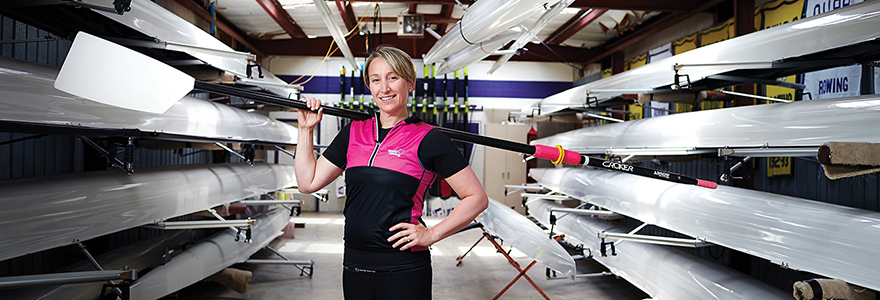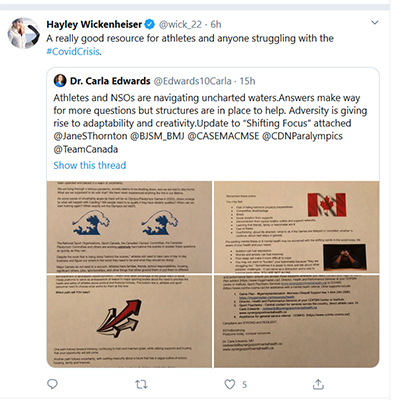Feature: Athlete mental health in the wake of COVID-19

By Crystal Mackay
This week, athletes around the globe experienced a roller coaster of emotions when the International Olympic Committee made the decision to postpone the 2020 Summer Olympics in the wake of the COVID-19 pandemic. This is only the fourth time the modern-day Olympics have been impacted by major world events.
Athletes are breathing a collective sigh of relief for their health and safety, but a whole range of other emotions are now bubbling to the surface. Those who had spent the past four years of their lives preparing for the Games are now finding themselves at home with their sporting goals on hold. They are also separated from their teammates and some with no means to continue the training that was an integral part of their lives.
Dr. Jane Thornton, a Sports Medicine Physician at Fowler Kennedy Sports Medicine Clinic, was seeing many athletes coming to her with mental health concerns in the face of these challenges. And not just future Olympians, but those who were gunning for scholarships, a place on a national team, or who had important competitions cancelled.
In response, she collaborated with sports psychiatrist Dr. Carla Edwards to create a mental wellness resource for athletes in the wake of COVID-19.
“When things were still uncertain, and to a large degree they still are, I was seeing athletes come in with various concerns ranging from anxiety to depression because they didn’t know what was going to happen to their athletic careers. This was happening in youth and teenagers all the way up to the adult population,” she said. “I knew that if patients were coming to me, there must others that weren’t seeking professional help who were struggling.”
The resource Drs. Thornton and Edwards created provides practical advice for athletes, but also normalizes their feelings and stresses the importance of connection. They recommend that athletes focus on controlling what they can control and shifting the goals and purpose of their ‘short game’ to focus on good nutrition, adequate sleep, self-care and activities that make them feel good. They also stress the importance of staying connected and reaching out for supports.

“One of the major things we recommend is maintaining human connection and maintaining a community,” said Dr. Edwards, who is encouraged by the teams she has seen coming together in virtual environments. “There is also the importance of maintaining some semblance of structure in their day.”
Dr. Thornton, a former Olympian herself who represented Canada in rowing in the 2008 Olympics in Beijing, says she can relate. “For me it took about ten years to be able to represent Canada on the Olympic stage and you do learn a lot about resilience, and a lot of other great qualities when you are participating in sport. But on the other hand, it can get to be all-consuming, if that’s the only thing you are focused on.”
Drs. Thornton and Edwards are sharing the resource through social media and have sent it to Canadian sports organizations across the country.
“The response has been really positive,” Dr. Thornton said. “What we’re going through right now is bigger than any competition, and the amazing part of sport is that it brings people together regardless of where they are. Hopefully this will prompt even more resources to help our athletes maintain a sense of normalcy during this time.”








